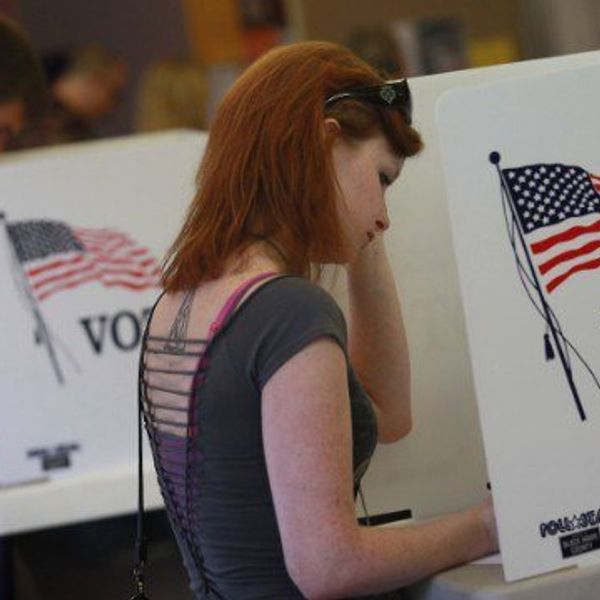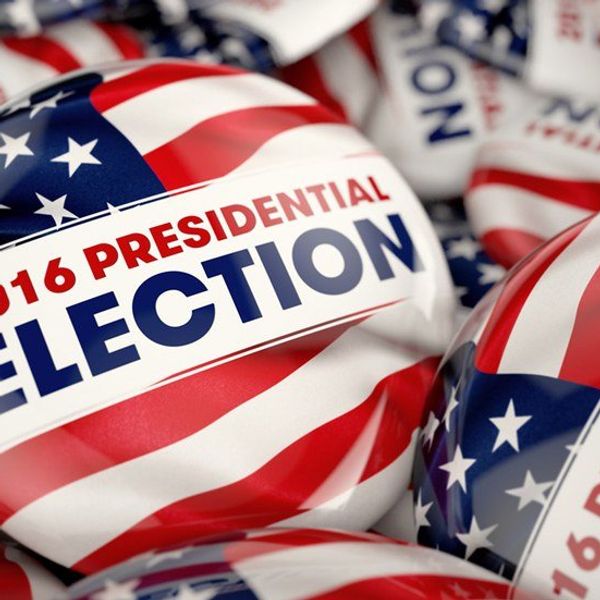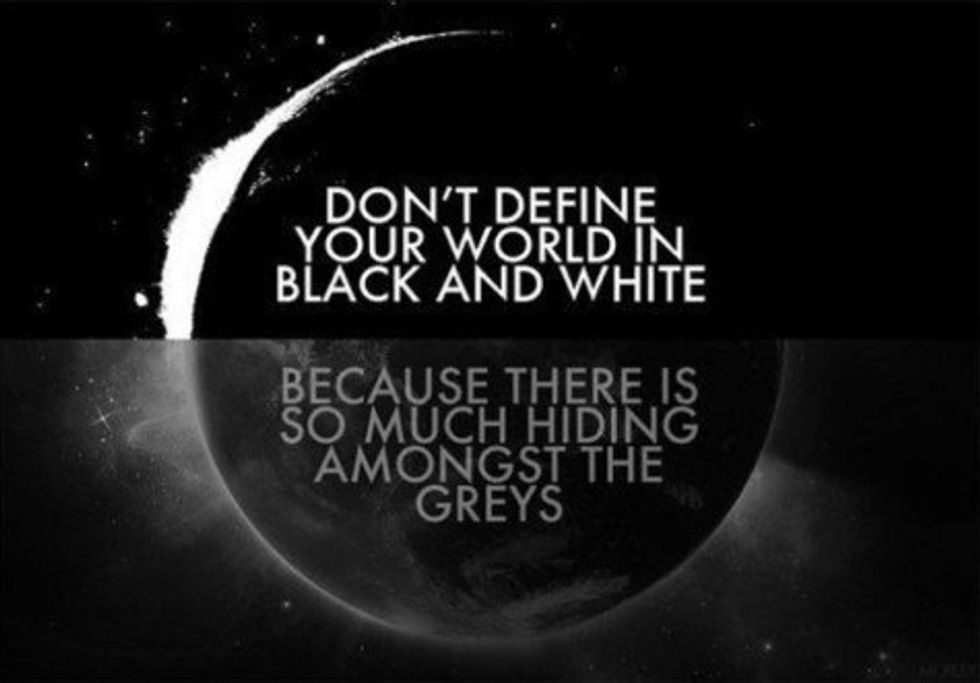In light of the 2016 presidential candidates being all over the news and social media (and pretty much everywhere else), I thought it would be appropriate to express one of my major life philosophies. To put it simply: nearly nothing in this world is truly black and white. Obviously I'm not talking about the colors themselves; there is a pure black as well as a pure white. This statement more so applies to politics, ethics, religion, and anything people could have a debate about. In this increasingly complex world, people often attempt to simplify issues by claiming that there is one right decision and one wrong one, but it is very rarely this simple.
Putting people, ideas, and pretty much every concrete and abstract thing in this world into categories does have its benefits. It makes complex topics simpler to discuss and easier for younger people to understand. However, this often leads to people acquiring the "black or white" mentality, assuming that there are two and only two opinions to choose from in every situation. Some scenarios have fewer shades of gray than others; for example, murder is recognized by the overwhelming majority of society as quite a terrible decision. Donald Trump's proposed immigration policies, on the other hand, have strong supporters and strong opposers, but there are also some people who agree with part of them or don't know where they stand on the issue themselves. Then there are political issues such as gay marriage, where there seem to be an infinite number of viewpoints.
Political posts on social media about these kinds of issues seem to be dominated by people who are on either extreme end of the political spectrum, but the vast majority of people lie somewhere between the two. Asking someone what political party they are a part of is a loaded question; if they agree with some Democratic ideas and some Republican, it's not a simple answer. Saying "I am a Democrat," for example, often leads people to assume that you agree with every single Democratic belief unless you tell them otherwise. More often than not, this assumption is false. Yet, we continue to categorize people into these mutually exclusive boxes because it seems easier and it's what we've done for hundreds of years.
When having these political debates (or any other discussion for that matter), some feel so strongly about their opinion that they forget what it is: an opinion, shaped by their specific life experiences. The difference between fact and opinion seems obvious, but many people appear to forget that these aren't synonymous when talking about controversial issues. Your personal views are not necessarily the "correct views." In fact, I don't think there is one "correct opinion" for anything. "Democrats and Republicans are the two major political parties in the United States," is a true statement. "Republicans are completely correct in every aspect of politics," is an opinion. Even if an opinion may seem completely justified to some, it's still just an opinion.
No matter where you go, who you hang out with, or what you say, people will disagree with you. There are probably some of you reading this who disagree with my notion that most decisions aren't simple binaries. All of these different "belief gradients," if you will, are what make this world so interesting. They're part of what make humans so diverse, and they also open our minds to more unique perspectives we may not have considered before. I encourage you to form your own opinions without restricting yourself to society's clearly defined boxes. Explore the infinite number of shades in between black and white, and you might discover something you didn't even know existed.






















